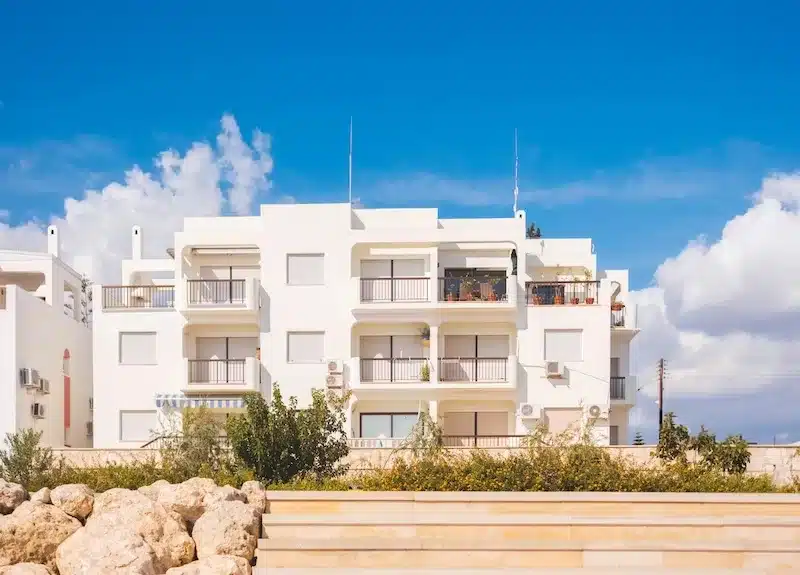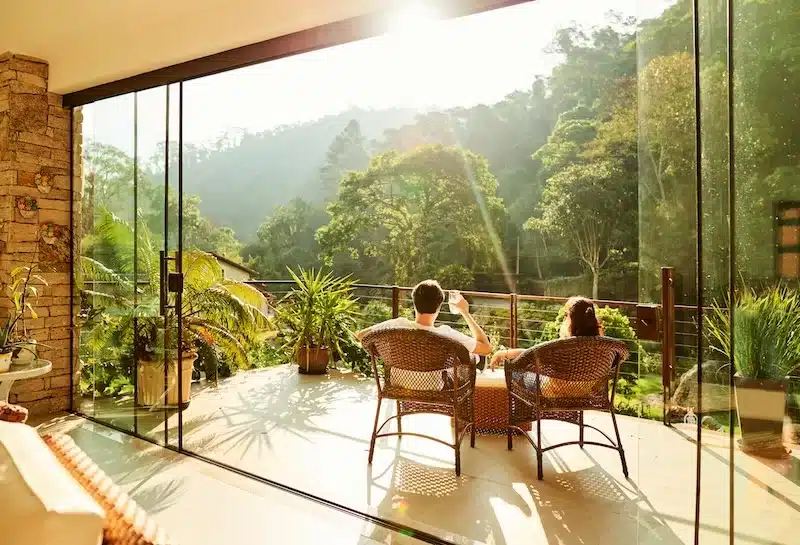There is a moment, often quiet and personal, when your thinking shifts. You stop scanning for the best stocks or the next tax shelter and start scanning the world—not for escape, but for access, for possibility, for a better way to live. That’s when you realize your next investment might not be an asset class or a portfolio position. It could be a place, a permit, or a passport—something that transforms your relationship to borders, bureaucracy, and belonging.
In an age where volatility is the norm and governments are just as likely to tax your savings as protect them, geographic flexibility has become its own kind of wealth. Residency and citizenship are no longer merely legal statuses; they’ve become tools—shields when needed, keys when invited. These instruments offer new freedoms, financial resilience, and a framework for navigating the turbulence that defines our world.
So what does it mean to invest in a residency program? It means anchoring your wealth strategy not only in capital, but in access. It means seeing your Plan B not as a fallback, but as a living, dynamic part of your global life. And it means understanding that the most astute investors today are also the most mobile.
In an age where volatility is the norm and governments are just as likely to tax your savings as protect them, geographic flexibility has become its own kind of wealth.

A Shift in the Wealth Mindset
There was a time when international living was viewed as a fringe choice—eccentric, even. Now it’s widely considered essential. High-net-worth individuals are no longer asking, “Should I move?” They’re asking, “How many jurisdictions can I legally access—and how quickly?” The idea of living a single-country life has become as outdated as dial-up internet. Today’s most strategic families are diversified across borders, not just financially but in terms of legal identity, healthcare access, and tax exposure.
This shift isn’t just philosophical—it’s pragmatic. Taxes, regulation, inflation, political instability, even healthcare capacity: these aren’t abstract concerns anymore. They’re immediate, tangible risks. Increasingly, the most effective way to manage them is through mobility.
“Residency is the new diversification,” says Amelia Varone, an international mobility strategist working with global families from Europe to Southeast Asia. “It’s no longer just about where your assets are. It’s about where you can legally go, live, and pivot when the environment shifts.”
Residency is the new diversification. It’s no longer just about where your assets are. It’s about where you can legally go, live, and pivot when the environment shifts.
What Residency Programs Offer
Residency programs—whether through investment, retirement status, or remote work categories—offer far more than just a visa. They provide a foothold, a legal presence in another jurisdiction that isn’t dependent on tourism or temporary stays. Depending on the structure, they may grant access to public or private healthcare, the ability to purchase and hold real estate, tax optimization strategies, and in many cases, eligibility for permanent residency or citizenship down the line.
For investors, residency isn’t simply about lifestyle enhancement. It’s about strategic positioning. It’s about building a foundation that protects wealth while broadening opportunity. And it’s about preparing not just for what life looks like today, but what it might demand tomorrow.

Global Residency as Strategic Advantage
There’s a significant difference between casually relocating and intentionally investing in a residency program. One is reactive. The other is proactive—often visionary. It’s about choosing the terms of your mobility rather than waiting for circumstance to dictate them.
For example, countries with territorial taxation, like Panama, Malaysia, and Georgia, only tax income earned locally. This means that income generated abroad—whether through dividends, royalties, crypto, or consulting—can remain untouched. For entrepreneurs, remote workers, and high-net-worth individuals alike, this becomes an invaluable component of financial planning.
Moreover, legal residency unlocks access to other benefits that tourists or short-term visitors cannot claim. From international banking and business formation to real estate ownership and participation in local legal systems, being a resident transforms the nature of your presence in a country. It elevates your rights and reduces your risks.
Read more like this: 12 Best Residency and Citizenship by Investment Options Under US$200K
But perhaps most importantly, residency offers time. The time to integrate, evaluate, and plan. Unlike tourist visas, which are fleeting, a residency permit can give you space to consider whether a place might eventually become home—or simply one of many anchors in your global strategy.
A residency permit can give you space to consider whether a place might eventually become home—or simply one of many anchors in your global strategy.
Who Is This Really For?
Residency-by-investment once conjured images of oligarchs and elites. But the modern residency investor is more diverse, and their motivations far more relatable. It could be a family pursuing better education for their children, a digital nomad craving regulatory clarity, a retiree outpacing inflation, or an entrepreneur seeking tax efficiency and a base in a more agile jurisdiction.
These programs cater to a range of demographics and wealth levels:
- Golden Visas attract investors who can commit capital to real estate or business development.
- Digital Nomad Visas support remote workers with verifiable income.
- Passive Income or Retirement Visas cater to individuals with pensions or investment earnings.
Barriers to entry vary. Some programs demand little more than proof of stable income. Others require significant investment. But nearly all are more accessible—and more transparent—than ever before.
Rethinking Investment
The idea of “investment” is often framed in narrow financial terms. But when you invest in a residency program, you’re reallocating resources toward a life that offers more autonomy, resilience, and freedom of choice.
A second residency allows you to diversify not just where your money goes, but where your life can unfold. It liberates you from singular dependence on one government, one tax regime, one political climate. And for many, that’s no longer just desirable—it’s necessary.
“Residency is one of the few instruments that can’t be frozen, devalued, or nationalized overnight,” says Léo Armand, a French investor who became a citizen of Uruguay through naturalization. “When the markets crashed, I wasn’t scrambling. My alternative residency had already set me up for continuity.”
This is especially important for citizens of countries with extraterritorial tax systems, such as the United States, where global income is taxed regardless of physical residence. For these individuals, strategic residency planning must go hand-in-hand with legal and tax advice. But even for others, securing access to another jurisdiction can create breathing room—and legal exit routes—should the need arise.
A second residency allows you to diversify not just where your money goes, but where your life can unfold.
Read more like this: Why Securing Second Residency Is Crucial to Your Escape Plan
Questions to Ask Before You Apply
Not every residency program is created equal, and not every one will be right for you. Before pursuing any option, it’s crucial to ask:
- Does the program align with my long-term goals—financial, personal, and generational?
- Is there a path to permanent residency or eventual citizenship?
- How will my tax obligations change both locally and in my country of origin?
- Can I access healthcare, education, and legal protection under this new status?
- How stable is the host country, politically and economically?
Residency isn’t a magic bullet. It’s a framework. A shift in your legal and financial geography. Like any serious investment, it requires due diligence, planning, and a realistic understanding of what you’re committing to.

The Timing Question
We are living through an era of tightening. Programs that once seemed wide open are beginning to narrow. Portugal is revising its incentives. Spain and Greece are under pressure to limit foreign property ownership. Caribbean citizenship programs are under increasing scrutiny. In short: the time to act is now.
Residency pathways that are available today may be closed—or significantly more expensive—within a few years. That’s why proactive planning matters. And that’s why more investors are choosing to act now rather than wait until their options shrink.’
Like any serious investment, gaining a second residency requires due diligence, planning, and a realistic understanding of what you’re committing to.
More Than a Visa
Residency is not just a legal status. It’s a philosophy of life. It reflects a worldview that values optionality over rigidity, agility over nationalism. It’s about acknowledging that in a complex, uncertain world, the greatest luxury isn’t simply wealth—it’s choice.
It’s the choice to move, to stay, to plan your family’s future beyond one flag or one framework. It’s the right to participate in multiple systems, to learn new languages, to grow new roots—or not. It’s about turning global uncertainty into personal leverage.
Residency gives you the tools to live across geographies, across cultures, and across time. It allows you to build a global legacy that isn’t bound by any single government’s policies or failures. It gives your children access to a wider world, and it gives you the flexibility to protect what matters.

Freedom is the Real Asset
Residency is not a trend. It’s a recalibration of risk and a reimagining of freedom. It offers a new framework for those who want to own their time, their location, and their future.
As inflation rises, governments shift, and financial systems come under stress, geographic flexibility becomes not just valuable—but essential. A residency program may begin as a legal strategy, but over time, it becomes something far more profound: a declaration of independence from the limitations of a single system.
And while your bank account might house your capital, it’s your residency that houses your autonomy. In a world where volatility is inevitable, it’s the ability to move that defines who thrives.
The most forward-looking investment you can make today might not be listed on any exchange. It might be a legal identity, a new address, a second home. It might be the freedom to begin again—on your own terms.
Read more like this: The Future of Residency Program
If you’re considering traveling or moving abroad, be sure to explore your healthcare options. Visit International Citizens Insurance to learn more and get a free quote.
Contact Author
"*" indicates required fields
Stay Ahead on Every Adventure!
Stay updated with the World News on Escape Artist. Get all the travel news, international destinations, expat living, moving abroad, Lifestyle Tips, and digital nomad opportunities. Your next journey starts here—don’t miss a moment! Subscribe Now!










